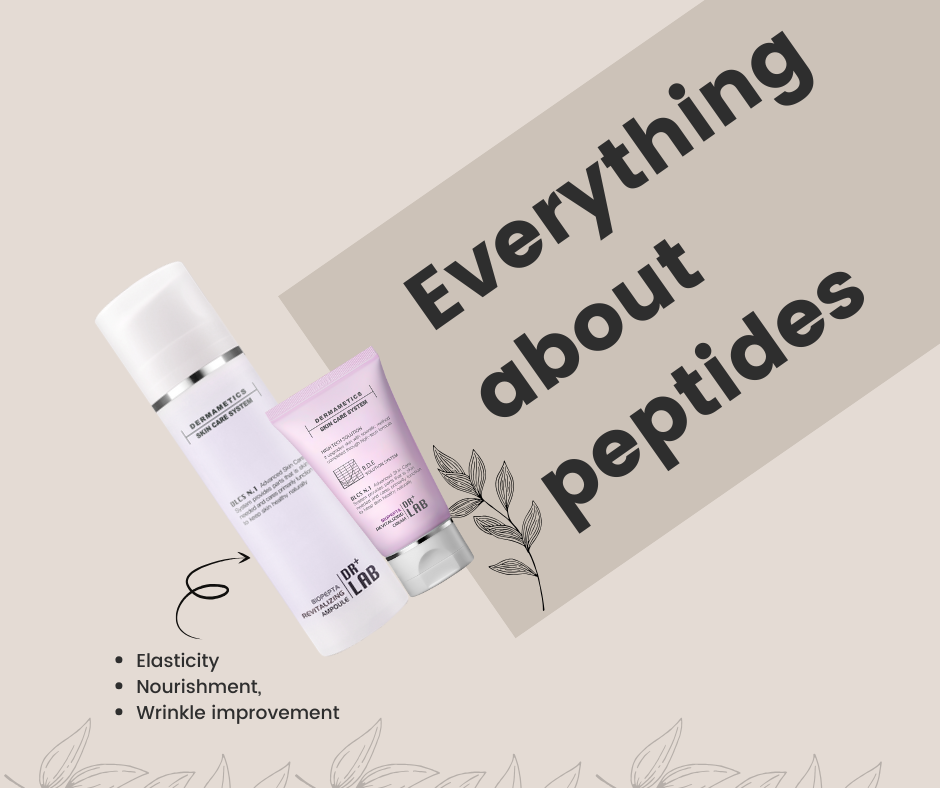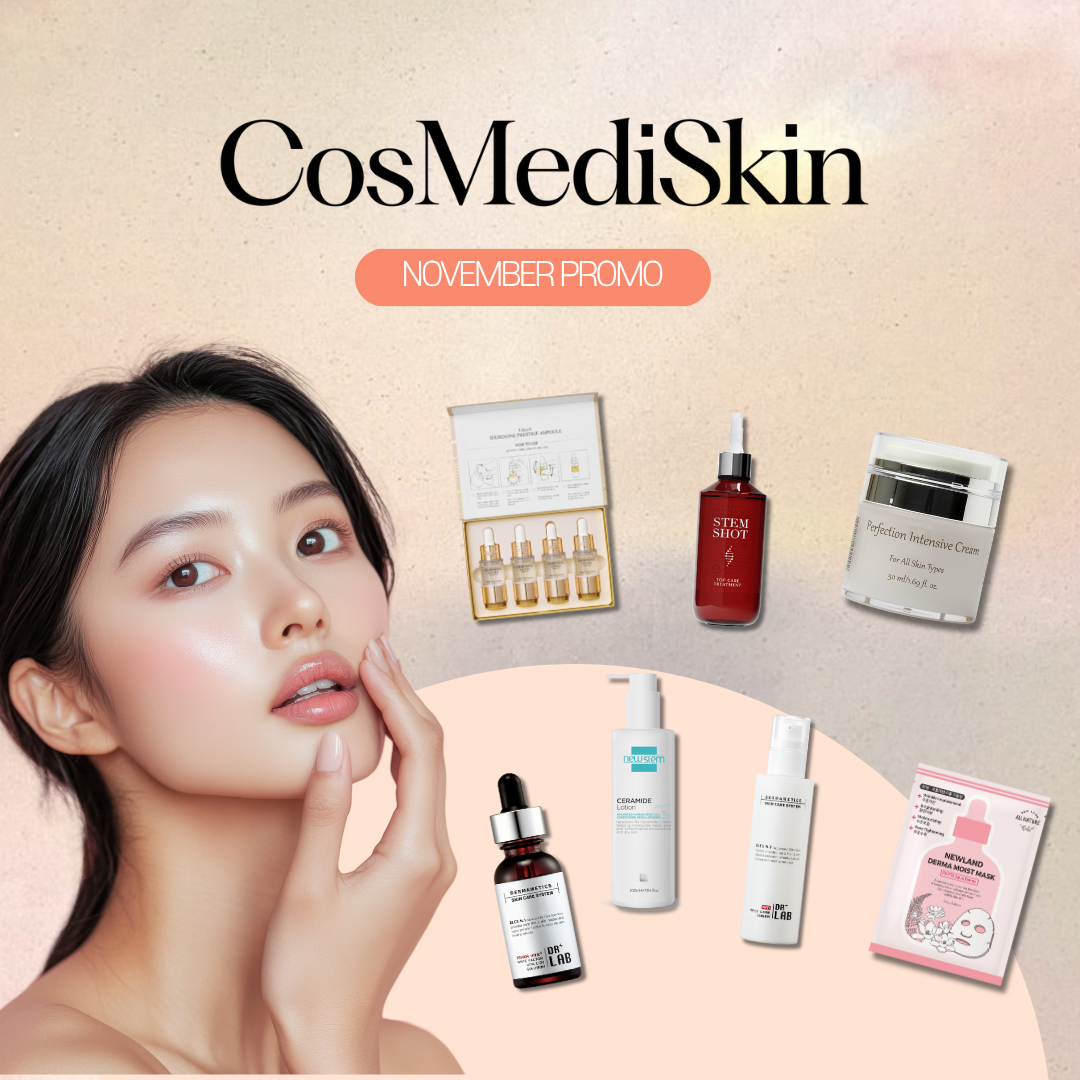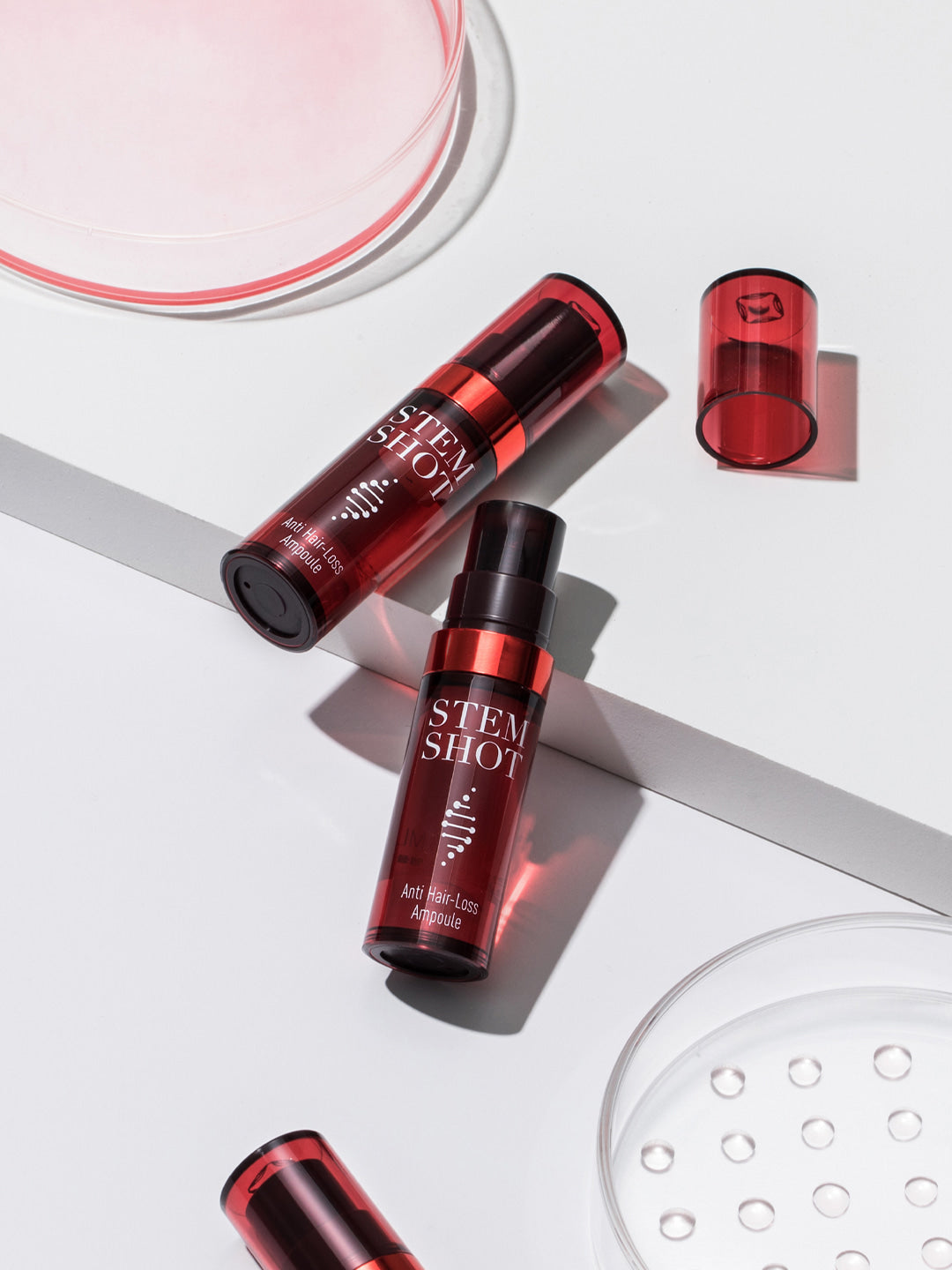Everything about the emerging ingredient, peptides, and their benefits

What are Peptides?
Peptides are essentially fragments of proteins. They are made up of amino acids. When amino acids combine in specific forms, they create specific peptides (there are hundreds of types), and when peptides form in particular ways, they become specific proteins. Proteins, such as collagen and elastin, are essential components that form our skin. Without peptides and proteins, the skin cannot be maintained. This leads to decreased elasticity, wrinkles, changes in skin texture, and the inability for the skin to bounce back like it used to.
What are the Benefits of Peptides?
Peptides act as coaches within the skin, instructing the skin's elements to regenerate, helping to revive aging skin. Beyond their well-known effects on anti-aging, supporting the skin barrier, and moisturizing, recent research is revealing countless other benefits. There are hundreds of types of peptides, but they all share one common trait: when formulated carefully, they have the ability to restore skin. Peptides activate moisture barriers and the skin microbiome (the microbial environment), helping the skin to appear younger.
Keep in mind that while peptides are excellent at promoting the regeneration of skin components and improving skin elasticity, they are not the magical solution to every skin concern. Additionally, the effects of peptides can vary slightly depending on the type. Dermatologist Beth McLellan states, "Having more options for skincare is a good thing because some people will discover that their skin responds better to certain ingredients, and others may see results from using multiple products."
What Peptides Are Used in Skincare Products?
here are many types of peptides, and their names can often be long and hard to identify on ingredient lists. However, don’t worry. Here's an easy way to recognize if a component is a peptide: if the ingredient name ends with "peptide" or includes "palmitoyl," it’s a clear indicator that it is a peptide. Often, peptides have numbers after the word “peptide,” which is a convenient way to identify them, though this does not apply to all peptides.
Here’s a list of common peptides and their names:
- Tripeptide-1: Helps improve fine lines and wrinkles.
- Palmitoyl Dipeptide-10: A synthetic peptide with skin conditioning and anti-aging effects.
- SH-PolyPeptide-121: A vegan collagen-like peptide with soothing effects.
- Palmitoyl Tripeptide-38: Also known as Matrixyl Synth’6, it helps maintain skin structure.
- Tetrapeptide-72: Supports skin structure.
- Palmitoyl Hexapeptide-12: A synthetic peptide that strengthens the skin barrier and boosts elasticity.
- Tripeptide-5: Helps the skin look younger and firmer.
How to Choose Peptide Skincare Products
Finding products with the power of peptides and great complementary ingredients can be tricky, but we’re here to help. First, peptides work best in serum forms or other absorbable product formulations. To deliver their full benefits, peptides need to stay on the skin for a long period. Look for moisturizers, serums, boosters, eye creams, sunscreens, and other skincare treatments that contain peptides. Cleansers, however, are not ideal because they are rinsed off almost immediately and don’t provide enough time for peptides to work.
Another important consideration is the form and packaging of the product. While peptides are powerful, they work best when combined with other ingredients like retinol, vitamin C, ceramides, or hyaluronic acid. Even if a product has the right formulation, it won’t work if the packaging isn’t right. Peptides degrade when exposed to light and air, so avoid products in transparent containers or jars. Companies like Paula’s Choice manufacture peptide products with these factors in mind.
What Peptides Can Be Used with?
As mentioned earlier, peptides need "friends" in the form of complementary ingredients to meet skincare needs. When combined with antioxidants, soothing ingredients, and skin-replenishing elements, consistent use of peptides can help address various signs of aging and provide satisfying results.
Are Peptides Safe?
Peptides have been confirmed as safe for all skin types. According to the latest safety reports from expert panels in 2017, 2018, and 2022, peptides are safe to use in cosmetic formulations at their current concentrations. The concentration and ratio of peptides in skincare products vary depending on the specific peptide. Generally, peptides are skin-friendly, offering mild moisturizing effects and even soothing benefits, as seen with SH-PolyPeptide-121. Peptides can also be taken as supplements or injected into the body, where they contribute to overall health, though these forms don’t affect the skin directly.
What Are Collagen Peptides?
Collagen peptides have gained significant attention in both health supplements and skincare products. However, there are some misconceptions about the benefits of collagen peptides (also known as hydrolyzed collagen). Unfortunately, this form of peptide does not help stimulate or repair collagen production in the skin when applied topically, as its molecules are too large to penetrate deeply into the skin. However, that doesn’t mean collagen peptides are ineffective. They act as moisturizers, drawing moisture into the skin and enhancing hydration, which helps create smooth, dewy skin. Studies suggest that oral collagen peptides can help improve skin smoothness and hydration, though they are just one component in your skincare routine.
Visit Dr.Lab Toner Products
https://cosmediskin.com/





